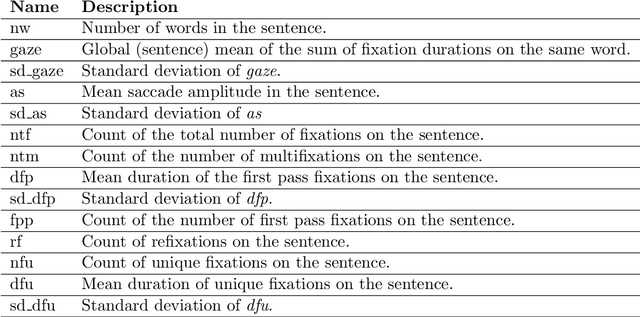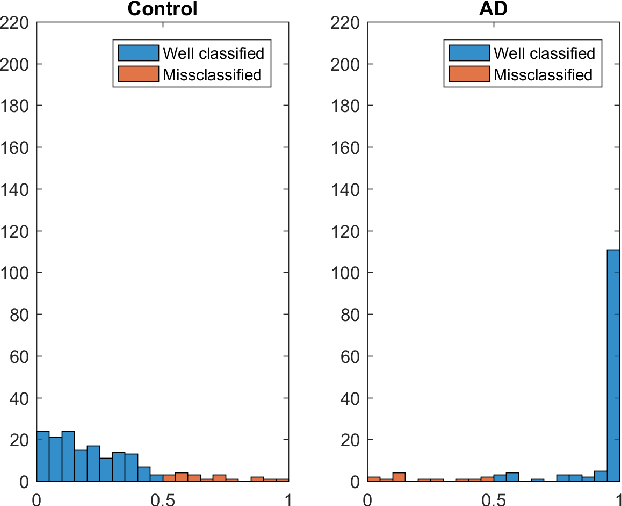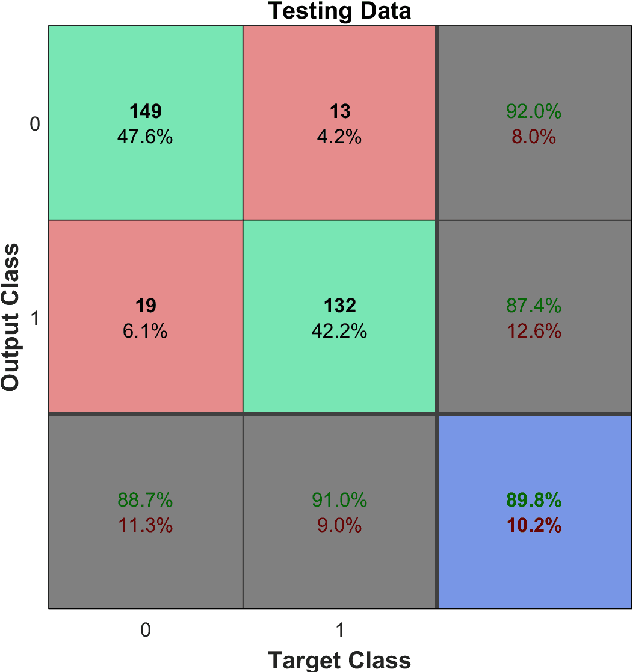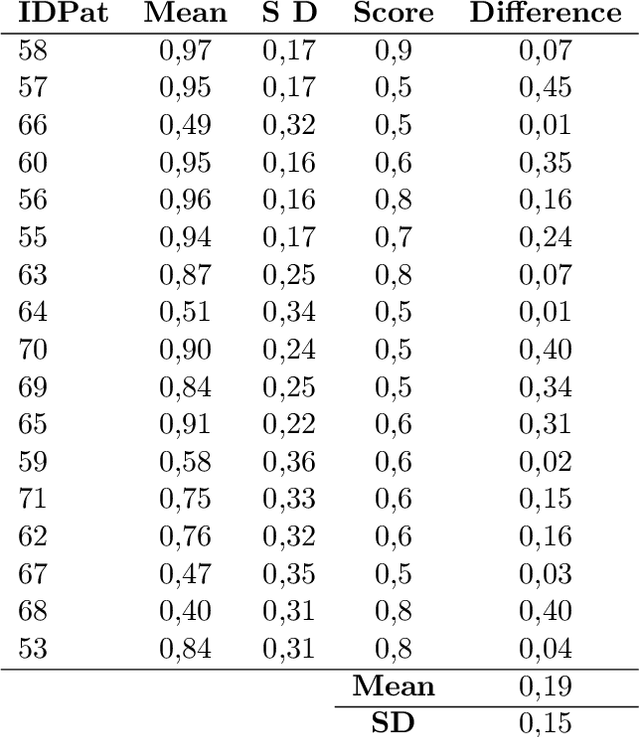Osvaldo Agamennoni
Eye-Movement behavior identification for AD diagnosis
Jan 15, 2018



Abstract:In the present work, we develop a deep-learning approach for differentiating the eye-movement behavior of people with neurodegenerative diseases over healthy control subjects during reading well-defined sentences. We define an information compaction of the eye-tracking data of subjects without and with probable Alzheimer's disease when reading a set of well-defined, previously validated, sentences including high-, low-predictable sentences, and proverbs. Using this information we train a set of denoising sparse-autoencoders and build a deep neural network with these and a softmax classifier. Our results are very promising and show that these models may help to understand the dynamics of eye movement behavior and its relationship with underlying neuropsychological correlates.
 Add to Chrome
Add to Chrome Add to Firefox
Add to Firefox Add to Edge
Add to Edge